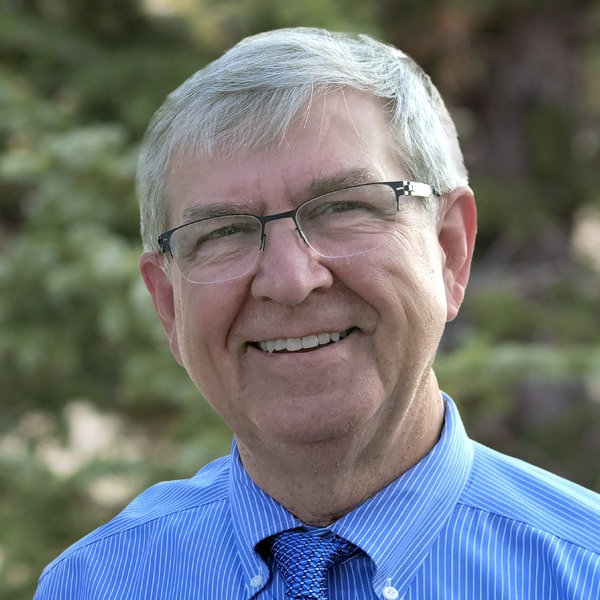
Mr. Putnam has 44 years of experience in contaminated site remediation while working with the New Jersey Department of Environmental Protection (NJDEP), EPA, and in environmental consulting. Perhaps most prominently, he acted as the state project officer for NJDEP in the federal Superfund program. In this position, Mr. Putnam coordinated interagency actions between EPA and the state.
Early in his career, Mr. Putnam was cochair of a New Jersey task force that, with the EPA region, was responsible for listing 65 Superfund sites on the initial National Priorities List—the most of any state. Because of his work, New Jersey continued to lead the nation in receiving Superfund monies, listing Superfund sites, and deleting Superfund sites. Mr. Putnam also served as one of five state program members on the Superfund Subcommittee of the National Advisory Council for Environmental Policy and Technology within EPA. Here, he was considered the in-house expert at NJDEP on the Superfund program.
Mr. Putnam’s last position with NJDEP was assistant director for the Publicly Funded Response Element, where he managed over 50 staff and an annual budget of over $15 million. His responsibilities included all phases of remedial response—from site identification through remedial investigation, feasibility study, remedial design, remedial action, and operation and maintenance—on over 300 cases addressing former dry cleaners, leaking underground storage tanks, abandoned factories, and major landfills. Because of Mr. Putnam’s position as an assistant director, his projects had the unique position of being both conducted and regulated by NJDEP. This situation put Mr. Putnam in the position of being the responsible entity for many permits as well as the compliance of those permits.
In addition, through various advisory groups within the National Governors Association and the Association of State and Territorial Solid Waste Management Officials, Mr. Putnam helped draft language for both the Superfund Amendments and Reauthorization Act as well as the Small Business Liability and Brownfields Revitalization Act. He has also testified before the New Jersey Legislature and has helped draft state legislation related to contaminated site remediation. He has also helped develop and implement the Immediate Environmental Concern (IEC) strategy that now protects thousands of residents from direct exposure to hazardous substances in their homes and workplaces.
Most recently, as a director of redevelopment, Mr. Putnam led renewable energy efforts to find new opportunities for solar development on solid waste landfills, brownfields, and historical fill sites. He is currently working on several grid supply and community solar projects.
B.S., Environmental Engineering, The Pennsylvania State University, University Park, Pennsylvania, 1979
OSHA Hazardous Waste Site Operations Health and Safety Certification
OSHA Supervisors of Hazardous Waste Operations Training
Member of various subcommittees for the CERCLA Committee of the Association of State and Territorial Solid Waste Management Officials for more than 30 years (1985–2016)
Instructor for CERCLA and Spill Act portions of the Rutgers University Continuing Education course “Environmental Law for Attorneys and LSRPs” (2015–2018)
Edward W. Putnam Senior Science Advisor
Mr. Putnam has 44 years of experience in contaminated site remediation while working with the New Jersey Department of Environmental Protection (NJDEP), EPA, and in environmental consulting. Perhaps most prominently, he acted as the state project officer for NJDEP in the federal Superfund program. In this position, Mr. Putnam coordinated interagency actions between EPA and the state.
Early in his career, Mr. Putnam was cochair of a New Jersey task force that, with the EPA region, was responsible for listing 65 Superfund sites on the initial National Priorities List—the most of any state. Because of his work, New Jersey continued to lead the nation in receiving Superfund monies, l...
Mr. Putnam has 44 years of experience in contaminated site remediation while working with the New Jersey Department of Environmental Protection (NJDEP), EPA, and in environmental consulting. Perhaps most prominently, he acted as the state project officer for NJDEP in the federal Superfund program. In this position, Mr. Putnam coordinated interagency actions between EPA and the state.
Early in his career, Mr. Putnam was cochair of a New Jersey task force that, with the EPA region, was responsible for listing 65 Superfund sites on the initial National Priorities List—the most of any state. Because of his work, New Jersey continued to lead the nation in receiving Superfund monies, listing Superfund sites, and deleting Superfund sites. Mr. Putnam also served as one of five state program members on the Superfund Subcommittee of the National Advisory Council for Environmental Policy and Technology within EPA. Here, he was considered the in-house expert at NJDEP on the Superfund program.
Mr. Putnam’s last position with NJDEP was assistant director for the Publicly Funded Response Element, where he managed over 50 staff and an annual budget of over $15 million. His responsibilities included all phases of remedial response—from site identification through remedial investigation, feasibility study, remedial design, remedial action, and operation and maintenance—on over 300 cases addressing former dry cleaners, leaking underground storage tanks, abandoned factories, and major landfills. Because of Mr. Putnam’s position as an assistant director, his projects had the unique position of being both conducted and regulated by NJDEP. This situation put Mr. Putnam in the position of being the responsible entity for many permits as well as the compliance of those permits.
In addition, through various advisory groups within the National Governors Association and the Association of State and Territorial Solid Waste Management Officials, Mr. Putnam helped draft language for both the Superfund Amendments and Reauthorization Act as well as the Small Business Liability and Brownfields Revitalization Act. He has also testified before the New Jersey Legislature and has helped draft state legislation related to contaminated site remediation. He has also helped develop and implement the Immediate Environmental Concern (IEC) strategy that now protects thousands of residents from direct exposure to hazardous substances in their homes and workplaces.
Most recently, as a director of redevelopment, Mr. Putnam led renewable energy efforts to find new opportunities for solar development on solid waste landfills, brownfields, and historical fill sites. He is currently working on several grid supply and community solar projects.
- Emergency Response
- Remedial Design and Construction
- Remedial Investigation
- Immediate Environmental Concern
- PFAS/Emerging Contaminants
- Regulatory Compliance
- Expert Testimony
- Project Management
- Feasibility Studies
- Litigation Support

